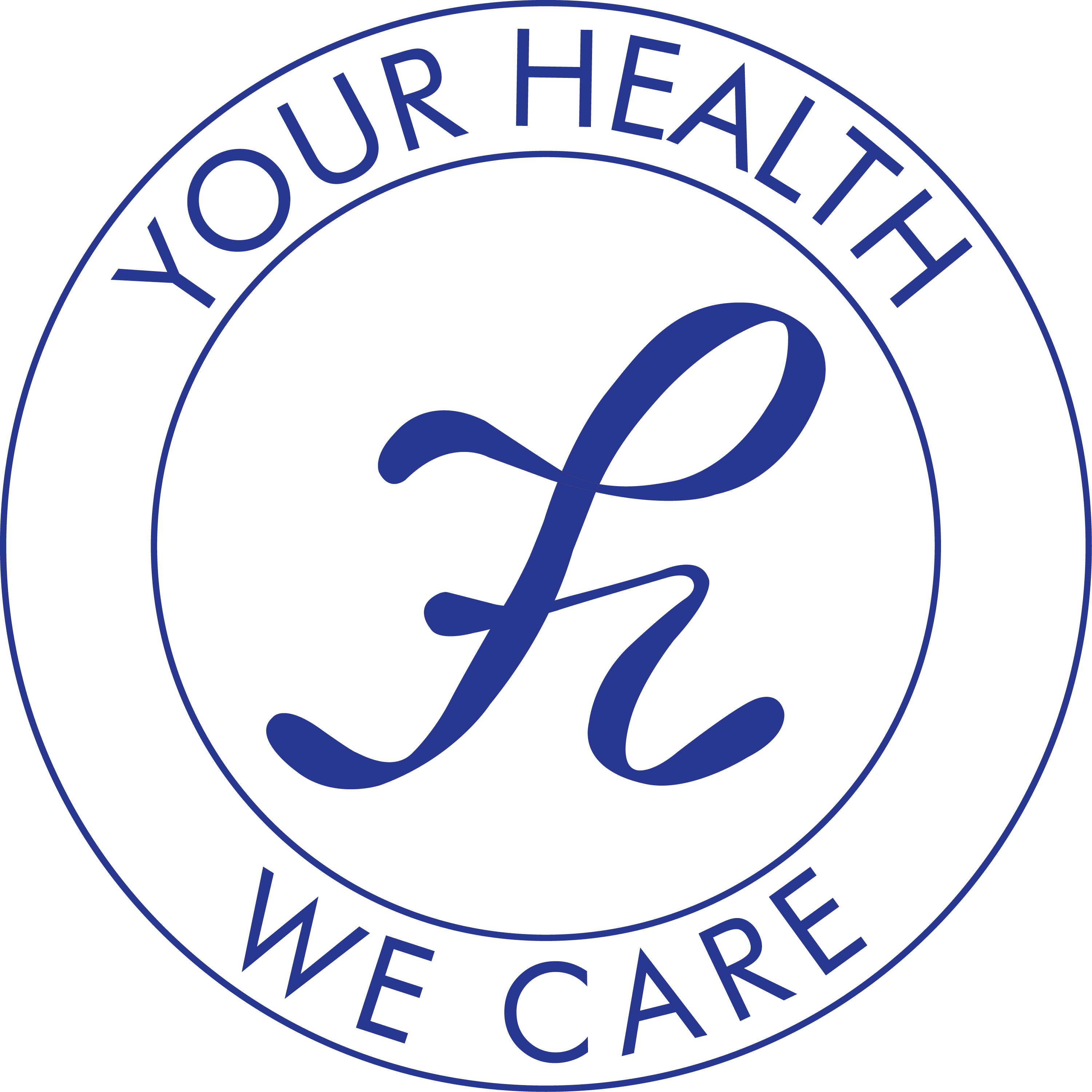Recent Information on Healthcare

FDA Grants Accelerated Approval for Alzheimer’s Disease Treatment
FDA approved lecanemab-irmb (Leqembi, Eisai), an antibody drug targeting amyloid beta plaques for the treatment of Alzheimer’s disease. Based on clinical trial results, the bi-weekly infusion significantly reduced brain amyloid plaque in patients with mild cognitive impairment or mild dementia stage of the disease. It is considered an important advancement in fighting Alzheimer’s for over 6.5 million Americans. The common side effects were infusion-related reactions, headache and amyloid-related imaging abnormalities. The drug received Accelerated Approval and Breakthrough Therapy designation. (January, 6, 2023, Silver Spring, MD)

China Optimizes COVID-19 Policies
China’s central government issued new 10-point notice on Covid-19 control, which is significantly different from previous policies that have been in place for almost 3 years. Most dramatic changes include no routine nucleic acid testing for the general population, no health code requirements in most places or for travel, and home-based quarantine for infected people. In addition, the scope of any “high risk” area has been shrunk to a minimal level and temporary lockdowns are prohibited. These major changes are in response to the highly contagious nature of the new Omicron variants and their much weakened disease trajectory. (December 7, 2022, Beijing)

CDC and Health Partners Responding to Monkeypox Case in the US
CDC confirmed a case of Monkeypox, a rare but potentially serious viral illness with flu-like symptoms and swelling of lymph nodes at onset, in a Massachusetts resident. CDC is tracking multiple clusters in other countries that don’t usually report the disease. The cases include people who identified themselves as men who have sex with men, although it can be spread through bodily fluids between people regardless of sexual orientation. CDC urges high-risk population to get risk assessed if suspected of infection and recommend healthcare providers be vigilant and consult health department of suspected cases. (May 18, 2022, Atlanta, GA)

FDA Takes Important Steps to Increase Racial and Ethnic Diversity in Clinical Trials
FDA issued a new draft guidance to industry to improve clinical trial diversity, that reflects the changes of US demographics and enhances participation of people from underrepresented racial and ethnic populations. Because genetic differences could make a treatment more or less effective for certain groups, it is important to enroll more diverse ethnic population in clinical trials for such treatment. The guidance applies to all medical products for FDA evaluation and approval. (April 13, 2022, Silver Spring, MD)

Shanghai Launches Classified Management of City Areas to Contain COVID-19 Spread
Since early April, Shanghai has been in a general lockdown to combat the latest Covid-19 outbreak with tens of thousands confirmed cases, including asymptomatic infections. Based on Covid-19 case statistics, the city designated thousands of neighborhoods into each of the 3 areas for containment management: closed-off area, restrictive area, and prevention area. People living in the most restrictive “closed-off areas” must stay at home for 7 days with services provided from outside. People in “prevention area” are free to move around, but not entering the other two areas. The designation of a neighborhood will change according to its Covid-19 data. (April 11, 2022, Shanghai)

FDA Authorizes New Monoclonal Antibody for Treatment of COVID-19 that Retains Activity Against Omicron Variant
FDA issued an emergency use authorization for bebtelovimab (Eli Lilly) to treat mild to moderate COVID-19 in adults and pediatric patients, who are at high risk for progression to severe COVID-19, including death. Clinical studies showed bebtelovimab was effective against both the omicron variant and the BA.2 omicron subvariant. The side effects included itching, rash, and infusion-related reactions. This is a new drug to combat the prevailing omicron variants. (February 11, 2022, Silver Spring, MD)

FDA Takes Multiple Actions to Expand Use of Pfizer-BioNTech COVID-19 Vaccine
With a new wave of Omicron variant infection across the world, FDA amended emergency use authorization (EUA) for the Pfizer-BioNTech vaccine in three key areas. Booster shot now is authorized for people 12 years and older; the interval between full dose vaccination and booster is reduced to 5 months; and a third dose can be given to immunocompromised children ages 5-11. These updated EUA reflected the latest clinical trial data, real world evidences, and urgent needs for expanded vaccination program. Side effects of the booster shots have been similar to previous situations and they are continually monitored and reported. (January 3, 2022, Silver Spring, MD)

China’s Xi’an Beefs up Anti-epidemic Forces to Contain Coronavirus
Xi’an, a major metropolis of 13 million in Northwest China has been locked-down since December 23, as about 100 new daily cases of Covid-19 emerged recently. Tens of thousands of government employees have been mobilized to join frontline workers to combat the latest outbreak. For example, a judge from city’s Intermediate Court was sent to a community center to support Covid testing work, where over half of the 18,000 residence were elderly and needed help. The judge’s wife is a police officer and also worked at frontline. (December 26, 2021, Xi’an)

FDA Authorizes First Oral Antiviral for Treatment of COVID-19
FDA issued new emergency use authorization (EUA) for the first oral drug, co-packaged nirmatrelvir and ritonavir tablets (Paxlovid, Pfizer) to treat specific adult and pediatric Covid-19 patients. The two tablets combination works together to maximize the antiviral effects. In clinical trials with high risk patients, 0.8% of those who received drug were hospitalized or died, comparing to 6% of those who got placebo. Side effects of Paxlovid included impaired sense of taste, diarrhea; and it cannot be taken with certain medication. This treatment is not a substitution for Covid vaccination or booster. (December 22, 2021, Silver Spring, MD)

Insulin Added to Bulk-Buy Drug Program
In China, 50-60 million people were diagnosed with diabetes while only 10 million received regular insulin treatment. The central government drug procurement team recently negotiated with 11 manufacturers and added 16 insulin products to the bulk-buy program, with prices reduced by an average of 48%. It was expected to save patients a total of $1.4 billion a year. The public health institutions plan to purchase 210 million doses in the first year and they can choose from different manufacturers to ensure stable supply. This is the first time a biological drug entered the program. (November 29, 2021, Shanghai)

FDA Approves First Drug to Improve Growth in Children with Most Common Form of Dwarfism
To treat children with most common form of dwarfism, achondroplasia, FDA approved vosoritide (Voxzogo, BioMarin) for this rare disease affecting about 10,000 children in the US. Vosoritide binds to a receptor which regulates growth gene’s activity and stimulates bone growth. A year-long clinical study showed children received the drug grew 1.57cm taller than those who got placebo. The common side effects include injection site reactions, vomiting and decreased blood pressure. It was granted priority review designation and approved under the accelerated approval pathway. (November 19, 2021, Silver Spring, MD)

Open Enrollment Kicks Off at HealthCare.gov with Record Low Premiums
For 2022, the health insurance premiums for Marketplace healthcare plans reached record lows, supported by the American Rescue Plan legislation. Health equity has become a central theme in marketing to help communities and minority groups with historically low rates of insurance. More plans are available and more affordable. More enrollment services are offered to consumers along with extended Open Enrollment Period and outreach with additional languages. (November 1, 2021, Washington DC)

Eight Things to Know about COVID-19 Countermeasures at Beijing 2022
The 2022 Winter Olympics is coming to China in February amid Covid-19 pandemic. The organizing committee issued the first set of guidelines to ensure safe and successful Games. Vaccination, masking, daily testing, health checks, and closed loop for athletic activities are some of the key measures to prevent and to contain Covid-19. Participants are required to continuously monitor own health 14 days prior to departing to China and after leaving from China. More guidance will be issued according to global Covid-19 situations in the future. (October 26, 2021, Beijing)

WHO Recommends Groundbreaking Malaria Vaccine for Children at Risk
Annually, malaria kills over 260,000 children under age of five in sub-Saharan Africa. The World Health Organization (WHO) now recommended widespread use of a malaria vaccine among children there and in areas of high malaria transmission. The recommendation was based on decades of research and pilot studies administering over 2.3 million doses in three countries over two years that resulted in significant reduction (30%) in deadly severe malaria. Global partners, such as PATH, GSK, and the Gates Foundation contributed in the efforts for this safe and effective vaccine. (October 6, 2021, Geneva, Switzerland)

FDA Authorizes Booster Dose of Pfizer-BioNTech COVID-19 Vaccine for Certain Populations
FDA amended previous emergency use authorization to allow a single booster shot of Pfizer-BioNTech Covid-19 vaccine for certain previously vaccinated populations. The targeted population included elderly, adults with high occupational exposure and high risk of severe Covid-19. With Delta variant spreading and more breakthrough cases, new data indicated beneficial effects of a single third dose of the same vaccine, given at least six months after completion of the initial two shots series. Clinical trials showed similar side effects to those of earlier vaccination. (September 22, 2021, Silver Spring, MD)

Centralized Purchase to Cut Artificial Joint Prices by 82%
The prices for artificial joints will be cut by 82% on average with a centralized government procurement program, after successful trial of centralized coronary stents purchase. For example, prices for hip joint will drop from around $5,400 to $1,086, and knee joints from $5,000 to about $780. The government will purchase 540,000 sets of joints from 44 companies, meeting 90% of the demand nationwide. (September 15, 2021, Tianjin)

Fall Semester Begins with Sweeping Anti-virus Measures
Schools in China are putting up strict anti-Covid measures to welcome students back to classes, including disinfection, social-distancing, wearing mask, temperature checks, and vaccination. Students will enter school in a socially distant fashion and sit in single seat with sufficient space in between. Nationwide, over 124 million doses of vaccines have been administered to minors 12-17 years old. In some provinces, over 90% of college students have been vaccinated. (August 31, 2021, Beijing)

FDA Approves First COVID-19 Vaccine
As another major milestone in the global fight against the Covid-19 pandemic, FDA granted full approval of the Pfizer-BioNTech Covid-19 vaccine (Comirnaty, BioNTech), for the prevention of Covid-19 in people 16 years and older. The vaccine has been used under Emergency Use Authorization since December 2020 worldwide. The approval is based on additional clinical data and facility inspection results that demonstrated the safety, efficacy and manufacturing quality of the product. Overall, it was 91% effective in preventing Covid-19. Most common side effects included pain at injection site, fatigue, headache, and some rare conditions after the second dose. FDA and CDC will continue monitor the safety of Comirnaty for the long term and additional studies will be conducted. (August 23, 2021, Silver Spring, MD)

FDA Approves First Interchangeable Biosimilar Insulin Product for Treatment of Diabetes
FDA approved the first biosimilar insulin drug insulin glargine-yfgn (Semglee, Mylan) to control blood sugar level in patients with Type 1 or Type 2 diabetes mellitus. In studies, this product showed no clinical differences to the original reference drug for the indications. With over 34 million diabetes patients in the US, the approval of this interchangeable product could significantly reduce the healthcare cost for those patients. Potential severe side effects included hypoglycemia, allergic reactions and hypokalemia. (July 28, 2021, Silver Spring, MD)

China to Extend Mass Vaccination Program to Minors Aged 12-17
Several provinces and cities in China have announced plan to vaccinate children and adolescents between 12 and 17 years old. Even this group tends to show mild symptoms of Covid-19, or not at all, they play an important role in controlling the spread of the variants. The northeast province of Heilongjiang and south autonomous region Guangxi will start vaccination to middle school and high school students. Parents or guardians are required to read thoroughly and sign the consent forms, and to accompany the minors at vaccination site. Consultation hotlines will be open to answer questions. (July 18, 2021, Beijing)

Joint CDC and FDA Statement on Vaccine Boosters
Based on available information, Americans who are fully vaccinated with approved Covid-19 vaccines do not need a booster shot at this time. Current data suggest that fully vaccinated people are protected from different variants, including the Delta variant, and from severe disease and death. However, those who are not vaccinated are at high risk, as virtually all new Covid-19 hospitalizations and deaths are among unvaccinated people. To stay vigilant, FDA, CDC, and NIH continuously evaluate scientific evidences from many sources to determine if, and when a booster shot might be necessary. (July 8, 2021, Washington DC)

China Administers 1 Billion COVID-19 Vaccine Doses
Over 1 billion doses of COVID-19 vaccines had been administered in China by June 19 to people 18 years and older. The large scale vaccination campaign accelerated across the country recently with the most recent 100 million doses administered in 5 days. It was found that the incidence rates of common side effects and abnormal reactions caused by the current vaccines were both below the rates of various other approved vaccines. For young people 3-17 years old, vaccination plan is being formulated. (June 21, 2021, Beijing)

FDA Grants Accelerated Approval for Alzheimer’s Drug
The irreversible and debilitating brain disorder, Alzheimer’s disease, affects 6.2 million Americans, and no new treatment has been approved since 2003. Today, FDA approved aducanumab (Aduhelm, Biogen) as the first drug that targets amyloid beta plaque, the fundamental pathophysiology of the disease. Clinical studies showed it reduced the amyloid beta plaque in the brain in a dose-and time-dependent manner as observed by imaging. The side effects included amyloid-related imaging abnormalities (ARIA), headache, fall, and confusion. The treatment was approved under accelerated approval pathway. (June 7, 2021, Silver Spring, MD)

FDA Authorizes Marketing of Diagnostic Aid for Autism Spectrum Disorder
Autism Spectrum Disorder (ASD) affects 1 in 54 children, and it can be difficult to diagnose, leading to potentially delayed treatment and intervention. Based on clinical studies for children 18-month to 5-year old, FDA approved a machine-leaning based software, ASD Diagnosis Aid (Cognoa), as a medical device to assist physician in diagnosing children at risk of ASD. The software is used as an adjunct to the diagnostic process, and it made accurate determination in 98.4% of patients with ASD in the studies. The risk is misdiagnosis and it should not be used as stand-alone diagnostic device. (June 2, 2021, Silver Spring, MD)

China’s Three-Child Policy to Improve Demographic Structure
China announced a new birth policy to three children per couple to improve the demographic structure of the population. Supportive measures, such as prenatal and postnatal care, childcare service system, housing support, and safeguarding rights of child-rearing women, are expected to follow. China adopted one-child policy in 1980 and allowed two children in 2013. However, overall birth rate and annual number of new babies continued to decline in the past several years. Based on recent census data, 17.95% of the population is of children under the age of 14, while the number of people over 60 is increasing rapidly. (June 1, 2021, Beijing)

Interim Public Health Recommendations for Fully Vaccinated People
CDC issued new guidelines for fully vaccinated people as more and more have got Covid-19 vaccine in the arms. In general, no mask or social distancing is needed for those fully vaccinated in most non-healthcare settings, indoors or outdoors. No testing or self-quarantine is needed for domestic travel either. However, even vaccinated people should get tested if experiencing Covid-19 symptoms. Specific state or local requirements may differ and all people should follow those rules accordingly. (May 13, 2021, Atlanta, GA)

Population Gets Older as Growth Slows
China’s 2020 national census showed a fast aging population of 1.41 billion with 18.7% of them 60 years or older; while people 14 years or younger is at 17.95%. The average yearly growth rate in the past decade has dropped to 0.53%, from 0.57% in the 2000-2010 decade. The decrease of women in childbearing age and lack of interest to have more children contributed to the decline of fertility rate to 1.3, a very low level. Policies need to change to encourage more newborns in the future. Those between 60 and 69 years make up about 56% of all older adults. The aging trend is expected to last for a long time and will put pressure on the labor force and service sectors, such as elderly care. (May 12, 2021, Beijing)

WHO Approves China’s Sinopharm Vaccine for Emergency Use
WHO issued emergency use authorization for China’s Sinopharm Covid-19 vaccine for people aged 18 to 59. The overall efficacy is estimated at 79% in a two-dose schedule. About 65 million doses of the vaccine have been distributed to many countries that already authorized its use. This is the sixth vaccine to receive WHO validation for safety, efficacy and quality, and the first one from China. Comparing to others, the Sinopharm vaccine is easy to store and carries a vaccine vial monitor, making it highly suitable for low-resource settings. This addition to the COVAX program will help WHO to better achieve the goal of equitable vaccine distribution. (May 8, 2021, Beijing)

CDC Issues Updated Guidance on Travel for Fully Vaccinated People
With millions completed Covid-19 vaccination since last December, CDC updated travel guidance to reflect current best practice for risk mitigation. For fully vaccinated people two weeks after receiving the last dose, no pre-travel testing or post-travel quarantine is needed when travel domestically. International travel rules are different depending on requirements of the destination country. Because of the large number of unvaccinated people, precautionary measures, such as wearing a mask, avoiding crowds, socially distancing, and washing hands are continually recommended for all travelers. (April 2, 2021, Atlanta, GA)

Biden Administration to Expand COVID-19 Vaccine Program to 950 Community Health Centers
Additional 700 community health centers can participate in federal Covid-19 vaccination program with direct support from the government to help lower income families and ethnic/racial minorities. Of all the patients in these federally-funded community-based health centers, 91% of them live at, or below 200% of the federal poverty guidelines and about 63% are minorities. Now, 950 such centers would be able to serve the unprivileged population for their vaccination needs in the pandemic. (March 11, 2021, Washington DC)

New Vaccine to “Provide 2-Year Protection”
The newly approved Covid-19 vaccine from China’s National Medical Products Administration (NMPA) may provide protection against the virus for two years if a booster shot is given. In clinical trials, the adenovirus-based vaccine showed an efficacy of 66% for symptom prevention and 91% effective against severe cases with a single injection. Additional data indicated that a second booster shot six months after the first one, could provide protection for up to 2 years. NMPA approved the vaccine for all people 18 years and older; and it is being studies in the 6-18 age group. (March 1, 2021, Beijing)

FDA Issues Emergency Use Authorization for Third COVID-19 Vaccine
The third Covid-19 vaccine was granted Emergency Use Authorization (EUA) in the US for individuals 18 years and older. The adenovirus-based vaccine, developed by Johnson and Johnson, required only one injection, with 67% efficacy in preventing moderate to severe Covid-19, and about 77% for severe/critical illness, after 14 days of vaccination. Similar to other Covid-19 vaccines, common side effects included pain at the injection site, headache, fatigue, mostly mild to moderate, lasting 1-2 days. The EUA was based on currently available data and all adverse events after vaccination will be monitored accordingly. (February 27, 2021, Silver Spring, MD)

To End HIV Epidemic, We Must Address Health Disparities
While significant progresses have been made to end the HIV epidemic in the past two decades, certain marginalized groups were still disproportionately impacted. In 2018, Southern US, with 37% of nation’s population, accounted for 52% of new HIV transmissions; while African Americans, with 13% of US population, accounted for 43% HIV-related deaths. NIH-funded studies showed that systemic barriers, such as stigma, structural racism, various forms of discrimination, including bias by healthcare providers, must be taken seriously and overcome to end HIV epidemic. (February 19, 2021, Washington DC)

Over 24m Doses of COVID-19 Vaccine Administered in China
Since China’s National Medical Products Administration (NMPA) conditionally approved the first domestically developed Covid-19 vaccine, more than 24 million doses have been administered throughout China, according to the Chinese Center for Disease Control and Prevention. NMPA continually monitored side effects of the Covid-19 vaccine and observed incidence of severe reactions has been comparable to that of typical flu vaccines. (January 31, 2021, Beijing)

China to Advance Reform of Centralized Drug Bulk-Buying to Ease Patients’ Financial Burden
China will continue centralized bulk procurement program of drugs and consumables to reduce the healthcare cost, with all public health institutions participating. Over the years, the estimated annual saving has been over 53 billion yuan (USD 8 billion) with an average price cut of 54%, benefiting several hundred million patients. High cost and high demand drugs will be prioritized in the negotiations, while innovator and generic drugs will compete based on quality and pricing. Corporate profitability will be considered in pricing and hospitals can still prescribe drugs not in the program. (January 15, 2021, Beijing)

HHS Releases National Strategic Plan to Address Viral Hepatitis
The Viral Hepatitis National Strategic Plan aims for eliminating viral hepatitis as a public health threat in the US by 2030. From 2014-2018, the rate of increase for new cases has been 850%, 11%, and 71% for hepatitis A, B, and C, respectively. As of 2016, nearly 3.3 million people in the US were living with chronic viral hepatitis. The comprehensive Plan is a roadmap for stakeholders at all levels and across many sectors to take on the epidemics. It provides guidance on disease prevention, treatment improvement, reduction of health inequalities, improved surveillance and integrated multi-agency, multi-stakeholder efforts. (January 7, 2021, Washington DC)

China Approves First Self-Developed COVID-19 Vaccine
As another milestone in fight against Covid-19, China announced it had granted conditional approval of its first, self-developed Covid-19 vaccine (Sinopharm), based on interim results from global phase 3 clinical trials. The trials were conducted in many countries with 60,000 participants and an overall efficacy rate of 79%. Since June, over 4.5 million doses of the vaccine have been distributed for emergency use with no reported severe adverse event. Vaccine inoculation and side effects will be continually and closely monitored and properly reported. Chinese citizens will receive the vaccine free of charge. (December 31, 2020, Beijing)

FDA Takes Key Action in Fight against COVID-19 by Issuing Emergency Use Authorization for First COVID-19 Vaccine
As a very significant milestone in battling Covid-19, FDA issued first emergency use authorization for the Pfizer-BioNTech vaccine (Pfizer) for the prevention of Covid-19 in individuals 16 years of age and older. The totality of clinical trial results, including the safety and efficacy data showed the messenger RNA vaccine was effective (95%) in preventing Covid-19, with potential benefits outweighing known and potential risks. The most common side effects included pain at the injection site, tiredness, and headache. Pfizer and vaccine administrator will continue monitor and report serious adverse events and cases of Covid-19 that result in hospitalization or death. (December 11, 2020, Silver Spring, MD)

FDA Authorizes Monoclonal Antibodies for Treatment of COVID-19
FDA issued emergency use authorization for casirivimab and imdevimab combination (Regeneron) to treat Covid-19 patients with mild or moderate symptoms and at high risk for disease progression. Clinical trial results showed the antibody drug combination reduced viral load in treated patients and their visit to emergency room or hospitalization. The antibodies were specifically directed against the spike protein of SARS-CoV-2 to block the virus. The side effects included anaphylaxis and infusion-related reactions. This treatment is not for hospitalized patients. (November 21, 2020, Silver Spring, MD)

China Expands its Arsenal in COVID Battle
Contaminated frozen food from severely affected countries have become the major source of Covid-19 virus for mainland China with several localized outbreaks all originated from various frozen imports, according to China’s CDC. Central and local governments have tightened up cold-chain imports monitoring, fine-tuned lock-downs and conducted targeted mass testing to combat pandemic while limited its disruption to daily life. Frozen food imports, the packaging, storage and transportation facility, workers with access are now routinely tested and contact tracing is closely monitored to avoid potential wide spread of the virus. (November 19, 2020, Beijing)

New Job Titles Meant to Improve Elder Care
Chinese authorities added more job titles in the elderly care profession to attract more people in this expanding sector, as the country is expected to have 255 million people age 60 or over by end of 2020. Titles such as “elderly competency evaluator” recognize the expertise of that job function, the qualification of the person and appropriate compensation. A properly trained evaluator could independently assess the full functionalities of an elderly and recommend the best care plan or appropriate nursing home support, while minimize disagreement. (November 9, 2020, Beijing)

FDA Approves First Treatment for COVID-19
As an important milestone in fighting the pandemic, US FDA approved first medical treatment for Covid-19. The antiviral drug remdesivir (Veklury®, Gilead Sciences) can be used in hospitalized adult and pediatric patients 12 years and older and weighing at least 88 pounds. It should be administered in a setting capable of providing emergency care. The approval is based on clinical trials with demonstrated beneficial outcomes. FDA also revised previously issued Emergency Use Authorization to include more pediatric patients. (October 22, 2020, Silver Spring, MD)

HHS Awards Nearly $500 Million to Support Primary Health Care Workforce Nationwide
Almost 20 million patients receive care from clinicians in the National Health Service Corps (NHSC) and Nurse Corps (NC) programs. The administration awarded nearly $500 million in grants and loans to support and retain healthcare professionals and students in high-need rural, urban and tribal areas to address health disparities and access to care for the most vulnerable Americans. The programs supported over 16,000 NHSC members and 1,700 NC clinicians, while 1,500 NHSC and 600 NC primary care students are preparing for future services in those areas. (October 15, 2020, Washington, DC)

Access to Healthcare Improves in Poor Areas
Each of China’s poorest counties and villages has now set up at least one public hospital or health clinic with qualified healthcare professionals. About 1,000 top-tier hospitals across the country plus county-level health institutions have sent over 180,000 medical workers to the impoverished areas in over 800 counties nationwide. This year, the government invested about $90 million in the rural areas to improve grassroots medical services, such as equipment and facility, and provided additional subsidies to medical staff in those locations. (October 15, 2020, Beijing)

FDA Authorizes First Point-of-Care Antibody Test for COVID-19
The first point-of-care (POC) test for COVID-19 antibody was granted emergency use authorization using fingerstick blood samples at doctor’s offices, urgent care centers and other POC locations. Unlike previously approved similar serology assays, samples in this test won’t be shipped to a central lab for evaluation, leading to more timely results. At the same time, FDA emphasizes that serology tests should not be used to diagnose an active COVID-19 infection or use the results to stop taking protective measures, such as social distancing and wearing mask. (September 23, 2020, Silver Spring, MD)

Plan Greatly Expands Nucleic Acid Testing Capabilities
By the end of July, China has completed 160 million nucleic tests since the COVID-19 outbreak and was capable of 4.8 million tests per day. The State Council released a plan to further enhance testing capabilities by end of the year: all tertiary and secondary hospitals will be able to conduct tests, 100 mobile labs will be completed with a total daily capacity of 1 million tests, and all testing professionals will be trained. The buildup will allow mass testing when needed, although only a dozen new cases were confirmed recently. (September 2, 2020, Beijing)

FDA Broadens Emergency Use Authorization for Veklury (Remdesivir) to Include All Hospitalized Patients for Treatment of COVID-19
The scope of treatment in the updated Emergency Use Authorization (EAU) of Veklury (remdesivir, Gilead) has been expanded to include all hospitalized patients with suspected or confirmed COVID-19. The decision was based on additional data of clinical trials and totality of available scientific evidence. Many hospitalized patients with mild to moderate COVID-19 also benefited from the drug, as those with severe conditions (initial EAU in May). Possible side effects include increased liver enzyme levels and infusion-related reactions. (August 28, 2020, Silver Spring, MD)

China’s Third Round of ‘Group Buying’ Sees Drug Prices Drop 53%
The centralized drug procurement program of the Chinese government conducted its third round of bidding and resulted in an overall price reduction by 53% of the medicines selected. A total of 189 pharmaceutical companies submitted bids with 125 of them successfully signed contracts for 191 products in 55 categories. National Healthcare Security Administration launched the program last year to enhance drug accessibility by patients and to reduce costs to public health facilities such as hospitals. (August 21, 2020, Shanghai)

China’s First Patent Granted for COVID-19 Vaccine
The first Chinese patent was issued to a new COVID-19 vaccine, which has completed phases 1 and 2 clinical trials in China. The recombinant COVID-19 vaccine, developed by scientists in the Academy of Military Sciences and other entities, demonstrated good immunogenicity and quick immune response in animal studies and its safety in human. It is the first vaccine approved for COVID-19 clinical trials in China in March. (August 17, 2020, Beijing)

HHS Marks the 30th Anniversary of the Americans with Disabilities Act
The landmark Americans with Disabilities Act (ADA) celebrated its 30th anniversary on July 26. For three decades, ADA has transformed the American society and established foundation for significantly better access and new opportunities for Americans with disabilities. In healthcare, ADA mandates equal access to medical treatment from organ transplant to COVID19 treatment. The Department of Health and Human Services (HHS) will continue to work on protecting the civil rights, removing barriers and creating opportunities for people with disabilities. (July 24, 2020, Washington, DC)

FDA Approves New HIV Treatment for Patients with Limited Treatment Options
The US FDA granted approval of Rukobia (ViiV Healthcare), a new class of antiretroviral medication, for HIV patients who failed multiple previous treatments or their infection could not be controlled. The clinical trial of heavily treatment-experienced adult patients showed that after 24 weeks, 53% patients achieved HIV RNA suppression; while after 96 weeks, 60% patients continued to have the suppression. The common side effect was nausea. The therapy received Fast Track, Priority Review and Breakthrough Therapy designations. (July 2, 2020, Silver Spring, MD)

CDC Releases Consolidated COVID-19 Testing Recommendations
The CDC release consolidated and comprehensive recommendations on COVID-19 testing based on the most current understanding of the virus and the disease. The recommendations updated previous guidelines for specific populations, such as people with symptoms or have contacted with infected patient, nursing home residents, healthcare professionals, high risk employees in certain industry. It also provided guidance on facility and administrative control at work place to reduce the spread of COVID-19. (June 13, 2020, Atlanta, GA)

Bigger Role for TCM Urged in Disease Control
In the COVID-19 epidemic in Wuhan, China, traditional Chinese medicines (TCM) were used along with western medicines to treat patients and to control the spread. The combinations have shown certain advantages over using western medicines alone. However, TCM hospitals and practitioners have been gradually shrinking over time and they were not given prominent roles in public health emergencies. Top legislators and policy advisers recommended enhance the application of TCM in disease control and prevention, and use them along with western treatments where appropriate. (May 28, 2020, Beijing)

FDA Guidance on Conduct of Clinical Trials of Medical Products during COVID-19 Public Health Emergency
During COVID-19 public health emergency, FDA issued and updated a new guidance for industry, investigators and institutional review boards regarding clinical trials of medical products. The goals are to ensure safety of the public, including the trial subjects and to maintain compliance when many health control measures are in place in the pandemic. The guidance reflects the current thinking of the agency on the topic and it is being implemented immediately without prior public comment under the circumstances. The agency still welcomes public comment on the guidance. (April 16, 2020, Silver Spring, MD)

Remarks by President Trump at Signing of H.R.748, the CARES Act
President Trump signed the Coronavirus Aid, Relief, and Economic Security Act (CARES) into law, an unprecedented legislation totaling 2.2 trillion dollars to support the nation’s fight against the coronavirus pandemic. CARES act authorized 300 billion to Americans as cash payments, 350 billion as job retention loans, and 250 billion for extended unemployment benefits. In addition, 500 billion will support hard-hit industries and 100 billion for doctors, nurses and hospitals. CARES act is a major economic relief package and biggest ever in American history. (March 27, 2020, Washington, D.C.)

Xi Vows to Win People’s War against Novel Coronavirus
Chinese President Xi visited a designated coronavirus hospital and a district CDC in Beijing, where he stressed the resolution of winning a people’s war against the coronavirus. Even though many people are back to work outside the Hubei province, after an extended Chinese New Year holiday, the epidemic situation is quite serious in Wuhan and many other cities and provinces. Tens of thousands medical professionals from around the country have been deployed to Hubei province to combat the epidemic. Since February 4, the number of daily new confirmed cases outside Hubei province has been dropping for six consecutive days. (February 10, 2020, Beijing)

Public Health Screening to Begin at 3 U.S. Airports for 2019 Novel Coronavirus (“2019-nCoV”)
The United States have started screening passengers in 3 airports (JFK, LAX, SFO) that received most of the flights from Wuhan, China, where the novel coronavirus (2019-nCoV) outbreak has recently occurred. Based on the Chinese authority, there have been limited person-to-person transmissions or community outbreaks. Such preventative measures at port of entry is an important step to mitigate risk of 2019-nCoV spread to the general public in the US, where the disease risk is currently deemed low. (January 17, 2020, Atlanta, GA)

China to Further Diversify Commercial Health Insurance Supply amid Growing Demand
Chinese government would like to further open up the commercial health insurance sector to meet the growing public demands. Currently, over 5,000 health insurance products are available in China, covering illnesses, medicare, medical accidents, nursing and disability income, etc. The health insurance premiums have grown steadily the first 10 months of 2019 at a pace of 30% to 614 billion RMB (88 billion USD) and are projected to reach 2 trillion RMB in 2025. New commercial insurance in social services such as elderly care, childcare, education, sports and tourism are expected to expand over time. (January 3, 2020, Beijing)

Trump Administration Takes Historic Steps to Lower U.S. Prescription Drug Prices
FDA issued a notice of proposed rulemaking (NPRM) to allow for importation of certain prescription drugs from Canada, and draft guidance on importation of drugs originally approved for sale in another country. These two approaches aimed at lowering drug cost and improving access for US consumers while maintaining drug safety and quality standards as established by FDA. The NPRM and guidance are for comment by key stakeholders and the general public. (December 18, 2020, Silver Spring, MD)

6.2 Million Middle and High School Students Used Tobacco Products in 2019
Based on a national survey analyzed by CDC, 1 in 3 US high school students (or 4.7 million) and 1 in 8 middle school students (1.5 million) used tobacco products in 2019. Six years straight, e-cigarettes were the most commonly used products, followed by cigars and cigarettes. Many factors influenced youth tobacco use, such as product advertising and promotion, misconception of harm, and curiosity. More than half of all current users have seriously considered quitting completely. (December 5, 2019, Atlanta, GA)

Statement on Efforts to Help Make Development of Biosimilar and Interchangeable Insulin Products More Efficient
Millions of Americans take insulin medication each day to control blood glucose level. To facilitate the development of new biosimilar or interchangeable insulin products, FDA issued draft guidance for the industry. The “Clinical Immunogenicity Considerations for Biosimilar and Interchangeable Insulin Products” reflected decades of research insights and experiences of FDA and industry. It is intended to help the manufacturers to develop more products effectively. (November 25, 2019, Silver Spring, MD)

Flu Vaccine Stockpile to Double This Season
To meet the increasing demand, 28 million doses of flu vaccine will be available for the upcoming flu season in China, double the amount of the last season. The National Health Commission has been working to encourage flu vaccine production and to accelerate regulatory approvals with 20 million doses already released to the market. City of Beijing has started vaccination of vulnerable groups, such as the elderly, since September with close to a million doses dispensed. (October 31, 2019, Beijing)

NIH Grantees Win 2019 Nobel Prize in Physiology or Medicine
The 2019 Nobel Prize in Physiology or Medicine has been awarded to Dr. Gregg L. Semenza, Johns Hopkins University, Dr. William G. Kaelin Jr., Dana-Farber Cancer Institute, and Sir Peter J. Ratcliffe, the University of Oxford, for their fundamental researches of how cells sense and adapt to oxygen availability. As NIH grantees, Dr. Semenza has received funding from NIH since 1988, totaling over $20 million, and Dr. Kaelin has also received funding from NIH since 1990, totaling over $30 million, to support their research programs. (October 7, 2019, Bethesda, MD)

CDC, States Update Number of Cases of Lung Disease Associated with E-cigarette Use, or Vaping
The Center for Disease Control and Prevention (CDC) announced updated case numbers of lung disease associated with using e-cigarette, or vaping. Based on the new CDC case definition, it showed 380 confirmed and probable cases of such lung diseases in 36 states and US Virgin Islands, and 6 deaths in six states. CDC continues to provide technical assistance and to work with federal agencies and states, to characterize the exposures and monitor the outbreak. (September 12, 2019, Atlanta, GA)

HHS Awards $107 Million to Support Health Center Quality Improvement
More than 28 million patients receive care from nearly 1,400 health centers operating in 12,000 sites across the nation. HHS announced $107 million in Quality Improvement Awards to 1,273 of them to further improve quality, efficiency and value of care they provide. The Awards (National Quality Leaders or Health Center Quality Leaders) recognize the achievements of the centers in key areas, such as behavioral health, diabetes prevention and management, and heart health. (August 20, 2019, Washington, D.C.)

China Makes Progress in Developing New Drugs
A major national science and technology project has helped the pharmaceutical industry in China to produce 139 new medicines since its launch in 2008, according to officials of the project. Forty-four are Class I new drugs, which have not been previously marketed in China or overseas. At the same time, more than 280 generics have been registered in Europe and the US, showing the development of the sector in China. (August 1, 2019, Beijing)

Stroke Becomes No 1 ‘Killer’ of Chinese Citizens
In a comprehensive study on mortality, morbidity and risk factors in China and its provinces, it was determined the top five causes of death in China in 2017 are stroke, ischemic heart disease, respiratory cancer, chronic obstructive pulmonary disease, and liver cancer. This ranking is significantly different from the disease burden of 1990, when lower respiratory infections and neonatal disorders occupied the top “killer” spots. The changes reflected major shift to chronic non-communicable diseases as the leading causes. The study was published in The Lancet. (July 10, 2019, Beijing)

China Adopts Tough Law to Ensure Vaccine Safety
China has passed a new law on the strictest vaccine management in its entire life cycle, from product development, manufacturing, distribution to individual vaccination. The law requires supervision system established with electronic information system on data recording and specialized inspection teams at both national and provincial levels. The records must be retained for at least five years after the expiry of the vaccine. Any party or person involved in the production and sale of fake or substandard vaccines will face serious charges with severe criminal penalties. (June 30, 2019, Beijing)

New Law Strengthens U.S. Efforts to Prepare, Respond and Recover from Disasters
The Pandemic and All-Hazards Preparedness and Advancing Innovation Act of 2019 (PAHPAIA), was enacted to strengthen programs that are critical in protecting Americans from health security threats and disasters. The Department of Health and Human Services (HHS) has been supporting various federal initiatives to safeguard the nation’s health security. As the name indicated, the law will further enhance programs, such as, Hospital Preparedness Program, the National Disaster Medical System, the Strategic National Stockpile, to address future public health emergencies and threats. (June 25, 2019, Washington, DC)

After 20-Year Increase, New Diabetes Cases Decline
A CDC study indicated new diabetes cases in the US had dropped by 35% from 1.7 million in 2008 to 1.3 million in 2017, and the number of people living with it remained stable in the past 8 years. In comparison, the number of new cases and people living with it doubled in the 1990s and throughout the 2000s. The favorable trend may be due to people’s awareness of the disease, healthier life style, and prevention programs. People with diabetes also live longer with more treatment and management options. (May 28, 2019, Atlanta, GA)

Leveraging Information Technology to Address Health Disparities
Reducing healthcare disparities among underserved minority populations may be achieved through the use of health information technology (IT) tools, such as, electronic health records, mobile health, e-prescribing. National Institute on Minority Health and Health Disparities (NIMHD) sponsored the publication of a dozen research papers on the potentials of health IT in improving patient clinical outcomes, enhancing safety, and reducing adverse events in such population to promote health equality for all in the US. The leaders of the NIMHD also wrote editorials and commentaries for the publications to emphasize the value of health IT. (May 14, 2019, Bethesda, MD)

China has 3.6 Million Medical Doctors
According to the National Health Commission, by the end of 2018, there were 3.6 million medical doctors, who took care of 8.3 billion patient visits in China. Comparing to 1998, the numbers of doctors and treatments have increased by 80% and 290%, respectively. Among key healthcare indicators, the infant mortality rate has dropped from 33.2 to 6.1 per 1,000 births nationwide, with maternal mortality rate reduced from 56.2 to 18.3 per 100,000 mothers in the same 20-year span. Additional measures will be taken to further improve the income and career perspectives of doctors. (April 21, 2019, Beijing)

Total Value of Medical Imports Decreases
In 2018, the total value of medical imports to China decreased by 9.75% year-on-year for the first time in many years to about $50 billion, according to the authority, while the volume increased by 9.52%. The value decrease is largely due to the sharp pricing drop of western pharmaceutical products. The demand for western medicines and biopharmaceuticals continued to grow, and their total values have fallen dramatically by 24% and 41%, respectively. (April 16, 2019, Beijing)

FDA Advances Landmark Policy Changes to Modernize Mammography Services and Improve Their Quality
Mammography is an important tool in detecting breast cancers, one of the most common cancers among women in the US. FDA is proposing amendments, for the first time in over two decades, to key regulations that would improve mammography quality standards, reporting and communication, and mammography facilities’ compliance. The technology advancements and breast density reporting would allow better decision-making for millions of Americans. The oversight of mammography facilities will also be strengthened in the proposed rule. (March 27, 2019, Silver Spring, MD)

China to Reduce Taxes for Rare-Disease Drugs
China’s value-added tax (VAT) for 21 rare-disease drugs and 4 active pharmaceutical ingredients will be reduced to 3% from March 1, 2019. The tax reduction will lower the cost of these drugs for patients and encourage the pharmaceutical industry to develop new ones. Currently, China has over 20 million people with rare diseases who need treatment. (February 28, 2019, Beijing)

CDC Data Confirm: Progress in HIV Prevention Has Stalled
After five years of decline, the number of HIV infections began to level off in 2013 at about 39,000 infections per year in the US, based on data on HIV trends from 2010 to 2016 in a Centers for Disease Control and Prevention (CDC) report. Data indicated that effective HIV prevention and treatment were not adequately reaching all populations, and HIV infections declined in certain groups while increased in others. The Ending the HIV Epidemic Initiative has been proposed with the goal of reducing new HIV infections by 90% over 10 years. (February 27, 2019, Atlanta, GA)

FDA Propose New Policies to Advance Development of Safe and Effective Cell and Gene Therapies
Product innovations have led to accelerated development of cell and gene therapies in recent years, while related clinical trials and product approvals are expected to increase in the future. The FDA plans to introduce additional policy guidance for such clinical trial, product development and manufacturing, risk mitigation and other advances, such as accelerated approval pathway, to promote the efficient development of safe and effective treatments and advance the field of cell and gene therapies. (January 15, 2019, Silver Spring, MD)

Births Drop despite Government’s Child Policy
According to the China’s National Health Commission, the number of births in China in 2018 was estimated at 15 to 16 million, with second children accounting for about half of it, while the number of women of childbearing age has declined by about 5.5 million from 2017. After three years of the two-child policy, it is projected that the number of newborns and the birth rate will continue to decrease over time with total population start to decline in 2030. (January 4, 2019, Beijing)

Pain Management Task Force Calls for Patient-Centered Approach to Improve Treatment of Pain
Chronic pain affects an estimated 50 million U.S. adults, of which nearly 20 million have experienced high-impact chronic pain. An inter-agency task force, led by Department of Health and Human Services (HHS) issued a draft report on pain management for public comments. The draft report proposed recommendations and best practices on managing chronic and acute pain, including practice guidelines, treatment approaches, risk assessment, education, special population and special conditions. The task force encourages the public to review and share their comments. (December 28, 2018, Washington, DC)

NIH Statement on Claim of First Gene-Edited Babies by Chinese Researcher
Director of National Institutes of Health, Dr. Francis S. Collins issued a statement on the claim of first gene-edited babies, as results of genetic manipulation using the CRISPR-Cas9 technology on human embryos by Chinese researcher Dr. He and his team. The research was widely condemned internationally and Dr. Collins considered it profoundly unfortunate, highly questionable, unconvincing, irresponsible, ill-considered and unethical. The statement emphasized that NIH does not support the use of gene-editing technologies in human embryos. (November 28, 2018, Bethesda, MD)

Vaccine Maker Changsheng Fined 9.1 Billion Yuan in Safety Scandal
A major vaccine producer, Changsheng Biotech Co was fined 9.1 billion RMB ($1.3 billion) for falsifying production and inspection records in the making of human rabies vaccines, the fine represents the upper limits allowed by law. Fourteen company executives were banned from engaging in drug production or marketing activities for life and 18 people from the company, including board chairwoman, have been arrested in a criminal investigation. The vaccine scandal is one of the most significant in Chinese pharmaceutical industry. (October 17, 2018, Beijing)

HHS Awards Over $1 Billion to Combat the Opioid Crisis
To further combat the opioid crisis, the Department of Health and Human Services (HHS) recently awarded over $1 billion in additional grants to federal and state agencies, community health centers, academic institutions, and rural organizations. The awards support the five-point opioid strategy, which was launched in 2017 and showed major progress nationally. The number of Americans initiating heroin use has dropped by around 50% from 2016 to 2017. From January 2017 through August 2018, the amount of opioids prescribed in America has dropped by 21%. This additional funding will help the nation to continuously tackle this epidemic. (September 19, 2018, Washington, D.C.)

Rules Issued for Online Medical Advice
China’s National Health Commission issued rules on online medical services to regulate and supervise this emerging market and better protect patient safety and rights. The online approaches improved access to healthcare for patients in remote communities. The new rules require online medical service providers establish cooperation agreement with brick-and-mortar hospitals in advance, and clinicians must have at least three years of experiences and prescribe only certain medication online. Purely virtual services are prohibited. (September 17, 2018, Beijing)

CPC Leaders Hear Reports on Defective Vaccine Investigation
The Communist Party of China (CPC) top leadership held a meeting to hear reports on the investigation of the defective vaccine case occurred recently in China. Xi Jinping, General Secretary of CPC and Chinese President chaired the meeting. The State Council has sent investigation teams to probe the case. The meeting said: “the facts of the case and the performance of duties of relevant departments and officials have been basically ascertained.” Several senior officials were immediately removed or asked to resign from their positions, some will be further investigated. “Vaccines are something that concerns public health and national security. The case is a serious offense.” More investigations, legal and disciplinary actions will follow. (August 17, 2018, Beijing)

FDA Approves First Generic Version of EpiPen
To prevent potential drug shortage and reduce cost, FDA approved the first generic version of EpiPen (by Teva Pharmaceuticals), a most-widely prescribed epinephrine auto-injector in the US for the emergency treatment of allergic reactions, including life-threatening anaphylaxis. The development of such generic combination product (drug and device) can be more challenging and FDA has published three guidances since 2009 related to this product. The authorized generic versions of EpiPen meet the FDA’s rigorous approval standards, and are marketed without the brand name or other trade dress. (August 16, 2018, Silver Spring, MD)

Ningxia to Build China’s First Internet Plus Healthcare Demo Zone
China’s Ningxia Hui Autonomous Region plans to establish the country’s first “Internet Plus Healthcare” demonstration zone. A telemedicine system was set up to integrate internet technologies with medical resources at various levels to improve the quality of public health services in the entire region. The system connected 7 hospitals at the regional level, 22 hospitals at the municipal or county level, and 196 medical care institutions at township level. (August 2, 2018, Yinchuan, Ningxia)

FDA Approves First Continuous Glucose Monitoring System with a Fully Implantable Glucose Sensor and Compatible Mobile App for Adults with Diabetes
FDA approved the first Continuous Glucose Monitoring (CGM) system (Eversense by Senseonics), for adults with diabetes. The system includes an implantable sensor to detect glucose and a corresponding mobile app, to allow patients better control their treatment. Using a novel light-based technology, the implanted sensor detects blood glucose level for up to 90 days and sends data to a mobile device every 5 minutes. The clinical study confirmed safety and effectiveness of the system while potential adverse effects were often related to insertion, removal and wear of the sensor. (June 21, 2018, Silver Spring, MD)

China on Verge of Eliminating Malaria, Health Official Tells UN Gathering
In Geneva, at World Health Assembly, the annual gathering of the United Nations World Health Organization, Chinese health official announced a milestone in eliminating malaria in China. In 2017, for the first time, zero indigenous case was reported in China. There are 200 million cases a year worldwide and 90% are in Africa. China joined global efforts fighting the disease in 2010 and set a target of complete elimination by 2020. China adopted country-led and country-owned efforts, with verification programs at various level of the government since 2012. (May 23, 2018, Beijing)

NIAID-Sponsored Trial of a Universal Influenza Vaccine Begins
The 2017-18 flu season was among one of the worst in the last decade, and again called for a more broadly effective influenza vaccine. The National Institute of Allergy and Infectious Diseases (NIAID), has started a Phase 2 clinical trial of an experimental vaccine, which contains antigenic peptide sequences shared among different flu viruses, targeting multiple trains. In Phase 1 trial of the vaccine, it was shown to be safe and well-tolerated by healthy volunteers, and produced immune responses to various flu strains as designed. The Phase 2 trial will occur in 3 hospitals in the US and funded by NIH. (May 4, 2018, Bethesda, MD)

Cancer Drug Imports Now Tariff-Free
To continue open up the healthcare market, Chinese government exempted 28 drugs from import tariff, including all cancer drugs on May 1. This will make foreign pharmaceutical products more competitive on the Chinese market. Government agencies negotiated with manufacturers and distributors to further bring down the prices. The clinical trial approval time by China’s FDA and time to reach the market have also significantly shortened for cancer drugs since 2014, while the number of approval increased. With about 3.8 million new cancer diagnoses in 2017, the efforts will have lasting impact on patients. (May 2, 2018, Beijing)

FDA Permits Marketing of Artificial Intelligence-based Device to Detect Certain Diabetes-related Eye Problems
The first artificial intelligence (AI) device was approved by FDA. Applying AI algorithm, the cloud-based software device, analyzes images of patient’s eye taken with a retinal camera, and provides a doctor with one of the two results: more than mild diabetic retinopathy detected, or not detected. Diagnosing adult with diabetes for diabetic retinopathy is an important part of managing the disease, and this software enables non eye care specialist to screen patients, for example, in a primary care doctor’s office. For positive result, patient will be referred to eye specialist for further evaluation. The device was granted Breakthrough Device designation, and reviewed under the De Novo premarket review pathway. (April 11, 2018, Silver Spring, MD)

Hospital on Fast Track to High Level
In the latest effort to further open up the China’s healthcare system, the Boao Super Hospital, located in the Boao Lecheng International Medical Tourism Pilot Zone, will get speedy approvals from the Hainan provincial government to import sophisticated medical equipment, and new drugs under simplified procedures, as decided by the State Council earlier in the month. According to Hainan Governor Shen Xiaoming, over 600,000 Chinese patients traveled overseas for medical treatment in 2016 due to drug and equipment limitations in China. With the new policy in place, Chinese patients, as well as international patients can come to the Boao Super Hospital for latest treatment not yet available in other places in China. (April 10, 2018, Beijing)

FDA Commissioner Remark at Congressional Hearing “Examining U.S. Public Health Preparedness for and Response Efforts to Seasonal Influenza”
The 2017-2018 flu season has been particularly challenging for people globally. The FDA commissioner Dr. Scott Gottlieb testified at the congressional hearing on the flu vaccine situations and agency’s preparedness and responses to the flu epidemic. Unlike previous years, the vaccine was only 33% effective against H3N2 virus strain this time, which may due to complex reasons. FDA and manufacturers have been evaluating egg-based, cell-based and recombinant vaccine technologies, and are analyzing data from this season to be better prepared for the next one. FDA also need to develop a science-based framework that includes the regulatory tools and guidance for product development. (March 8, 2018, Silver Spring, MD)

China’s Nursing Homes More Than Triples in Past Five Years
According to the Ministry of Civil Affairs, the number of nursing homes in China has more than tripled in the past five years. As of September 2017, the country has over 144,600 nursing institutions, a 226 percent increase from 2012. New data released by the Office of the National Working Commission on Aging, indicated that by the end of 2017, there were 241 million Chinese aged 60 or above, accounting for 17.3% of the total population. The Chinese government has launched campaign to improve the quality of nursing institutions for the elderly. (February 22, 2018, Beijing)

NIH Releases First Dataset from Unprecedented Study of Adolescent Brain Development
The National Institutes of Health (NIH) released the first dataset from the Adolescent Brain Cognitive Development study, which included 30 terabytes of data from 4,500 participants. The comprehensive dataset provided high-quality baseline data on a large sample of 9-and-10-year-old children, and is available to researchers worldwide for study on adolescent brain, cognitive, social, and emotional development. The study is designed to reflect the demographics of the US with a diverse population, and aims to enroll 11,500 children by end of 2018. The participants will be followed for 10 years with periodic interviews and testings. (February 13, 2018, Bethesda, MD)

Health and Civil Affairs Ministries: Elderly Care, Doctor Training among Key Issues Addressed
As the Chinese aging population grows, elderly care and training of general practitioners are becoming important matters for the country. Leaders from relevant ministries outlined current trends and goals for the future in recent press conferences. The numbers of private nursing homes and community based elderly care facilities have increased at 7.8% and 41.3%, respectively in 2017, while accidents dropped by about 25%. Currently, there are about 200,000 general practitioners in China, and the goal is to train additional 500,000 doctors by 2030, so that there will be 5 primary care doctors for every 10,000 residents. (February 6, 2018, Beijing)

China-US Partnership Improves Medical Treatment in Tibet Areas
In 1987, Boulder, Colorado, USA and Lhasa, Tibet, China established a sister city relationship and have since partnered in programs to improve education in healthcare and other aspects in Tibetan areas. Over the past 3 decades, Bill Warnock, CEO of the Boulder-Lhasa Sister City Project, has been to Lhasa 23 times and participated in several medical programs there. Recently, the program helped a young Tibetan woman, Lurong Dregar, with one eye blind, to get MRI scan and surgery free of charge. They found the cause of her blindness, a parasite, and the surgery reduced her brain pressure due to severe hydrocephalus. Next year, the program will focus on prevention of cysticercosis through education of rural doctors in the region. (December 31, 2017, Beijing)

Mortality in the United States, 2016
Centers for Disease Control and Prevention released comprehensive US mortality data for 2016 with detailed demographic breakdowns. The overall life expectancy for the U.S. population in 2016 was 78.6 years (male 76.1, female 81.1), a slight decrease from 2015 and 2014. The decrease in consecutive years is largely due to the increase of fatality rate in the unintentional injuries category, especially for the younger age groups. The 10 leading causes of death are heart disease, cancer, unintentional injuries, chronic lower respiratory diseases, stroke, Alzheimer’s disease, diabetes, influenza, pneumonia, kidney disease, and suicide, same as 2015. Comparing to 2015, unintentional injuries and chronic lower respiratory diseases switched ranking, and the death rate decreased in all except 3 categories: unintentional injuries, Alzheimer’s disease, and suicide. Cancer remains as the second leading cause of death at rate of 155.8 per 100,000 people, behind heart disease at rate of 165.5. The infant mortality rate remained virtually unchanged from 2015. (December, 2017, Hyattsville, MD)

China’s Major Diseases Medical Insurance Covers 1 Billion People
China’s National Health and Family Planning Commission announced that the country’s major disease medical insurance had enrolled over 1,000,000,000 people, about 70% of the population. The major disease insurance would cover over 50% of patients’ medical cost. This is an important milestone for the healthcare sector in the 13th Five Year Plan period (2016-2020). At the same time, the authorities lowered the insurances’ payment threshold, raised their payment percentage, and expanded scope of coverage. (December 18, 2017, Beijing)

FDA Statement on Implementation of Agency’s Streamlined Development and Review Pathway for Consumer Tests that Evaluate Genetic Health Risks
FDA has started to implement a novel regulatory approach for the regulation of diagnostic genetic health risk (GHR) tests after exploring various options, as consumers’ direct access to GHR tests has greatly enhanced with technological advancements. The goal is to get innovative medical products on the market more efficiently, while providing proper FDA oversight and assurance. To ensure meeting FDA requirements, manufacturers must come to FDA for a one-time review, before the new GHR tests enter the market. The agency also established special controls for these tests. FDA issued a notice of its intent to allow GHR tests to be exempted from premarket review under certain conditions. (November 6, 2017, Silver Spring, MD)
Medical Disclaimer: All information provided on this Website is intended for general knowledge only, and it is not intended to replace medical advice offered by qualified healthcare providers. You should not use the information to diagnose or treat a health problem or specific medical conditions.
